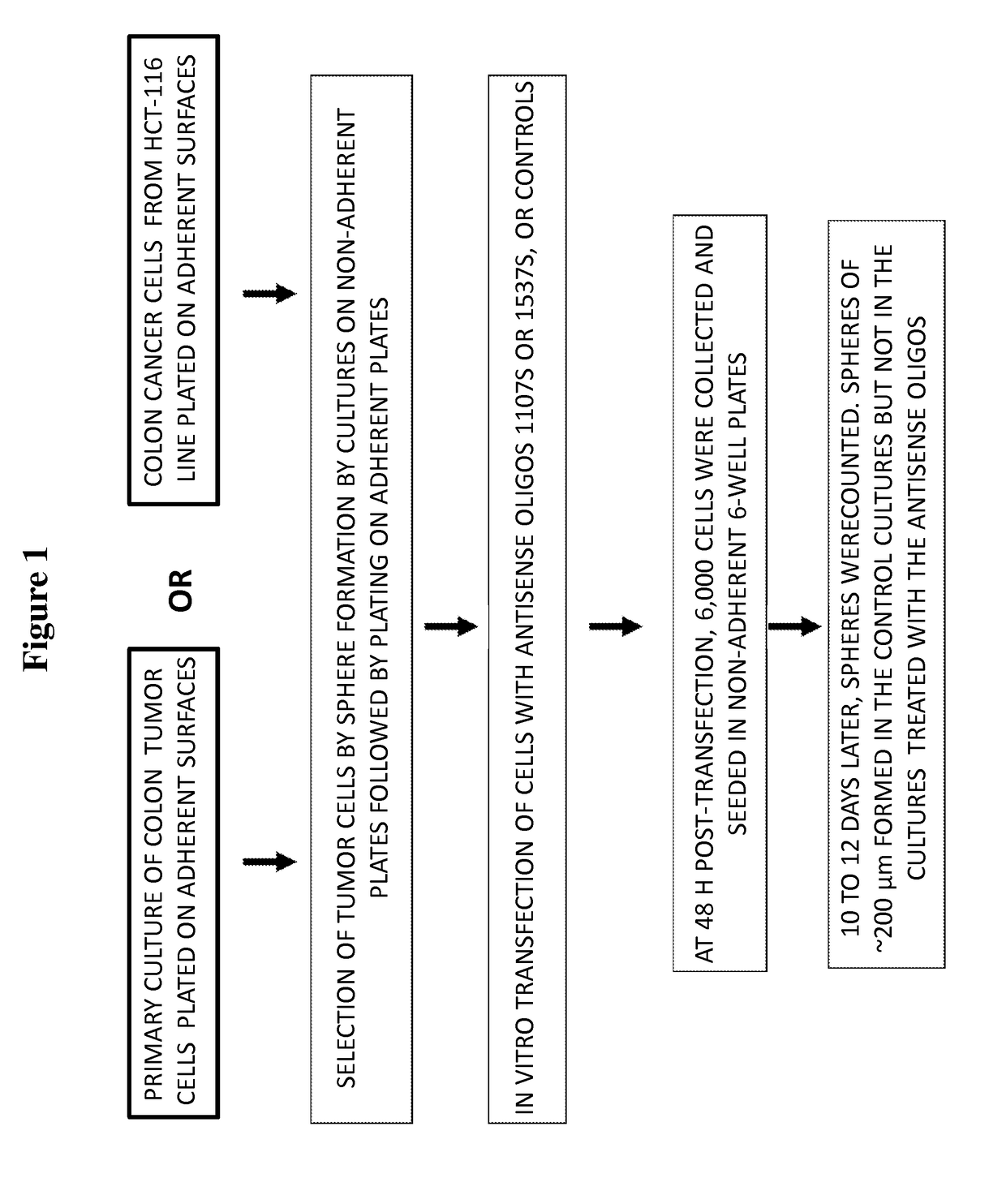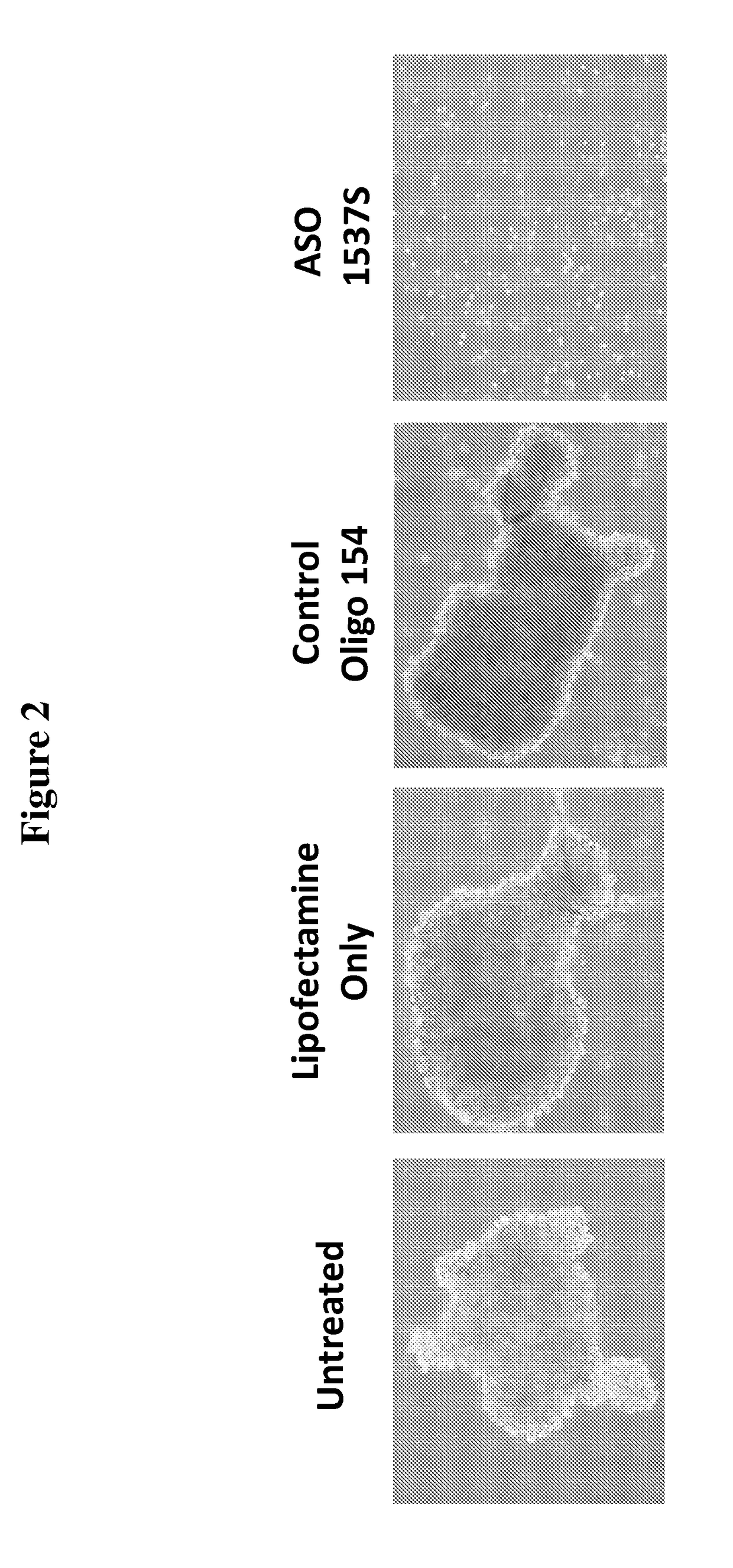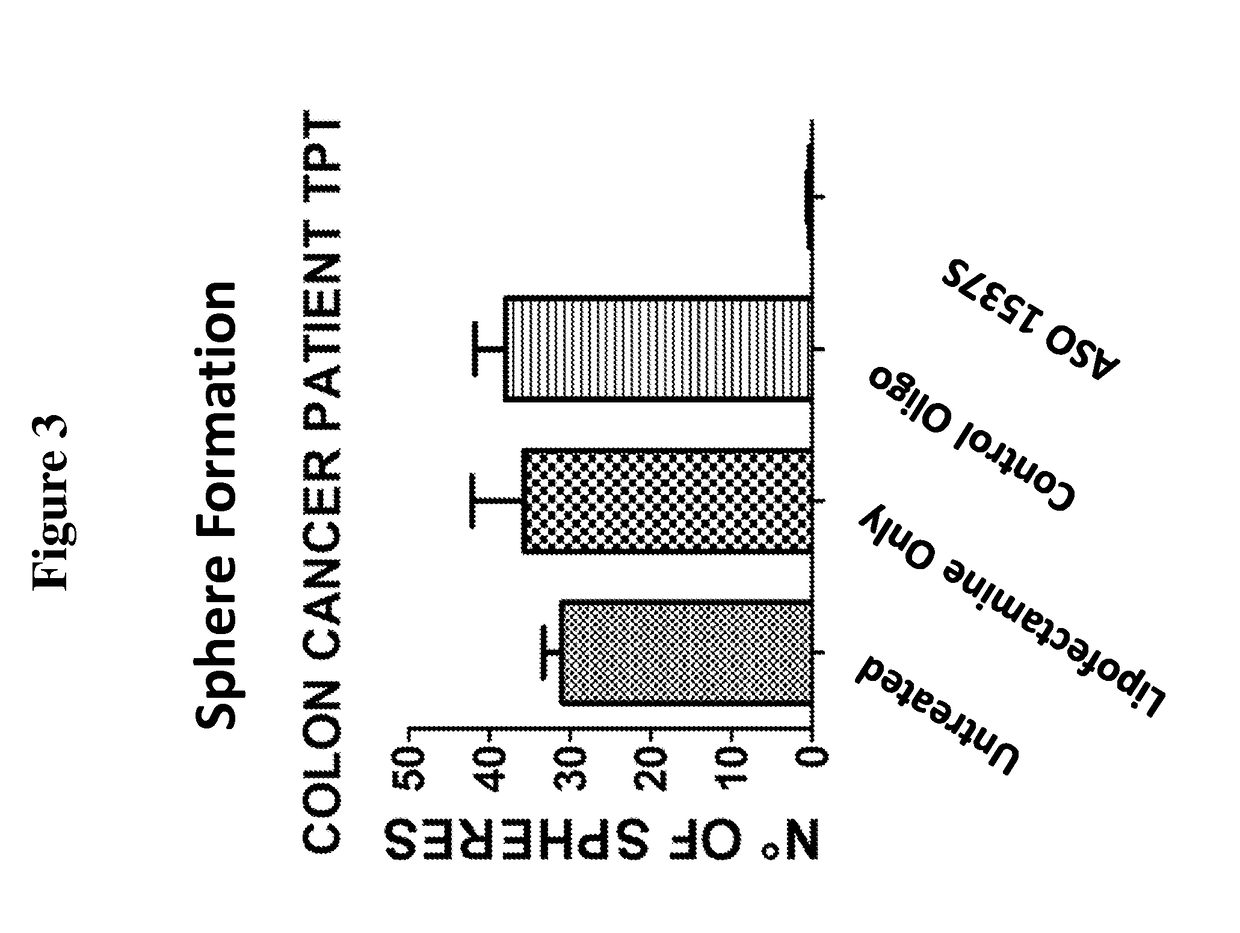Antisense oligonucleotides for treatment of cancer stem cells
a cancer stem cell and antisense oligonucleotide technology, applied in tumor/cancer cells, drug compositions, genetically modified cells, etc., can solve the problems of cancer relapse after remission, lack of differentiation, and inability to invade other tissues and metastasize, so as to suppress cancer stem cell proliferation, and inhibit tumor growth and/or metastasis
- Summary
- Abstract
- Description
- Claims
- Application Information
AI Technical Summary
Benefits of technology
Problems solved by technology
Method used
Image
Examples
example 1
of HCT-116 Colon Cancer Cells and Primary Cultures of Human Colon Cancer Cells with Antisense Oligonucleotides Complementary to Antisense Non-Coding Chimeric Mitochondrial RNA Abolished Sphere Formation
[0174]In this study, the ability of cells, from both the HCT-116 colon cancer cell line and primary cultures of human colon cancer cells derived from patients, to form spheroid bodies following treatment with antisense oligonucleotides directed to antisense non-coding chimeric mitochondrial RNA (ASncmtRNA) was determined. The assay utilized measured the numbers of spheroid bodies, also referred to herein as spheres, based on the specific ability of cancer stem cells to form these spheroid bodies.
[0175]Materials and Methods
Experimental Scheme:
[0176]FIG. 1 demonstrates a general scheme of the experimental procedure and the assay utilized herein to measure the effect of antisense oligonucleotides targeted to ASncmtRNA on the number of spheres formed in colon cancer cells, based on the sp...
example 2
of a Cervical Cancer Cell Line and Primary Cultures of Human Uterine Cervical Cancer Cells with Antisense Oligonucleotides Complementary to Antisense Non-Coding Chimeric Mitochondrial RNA Abolished Sphere Formation
[0189]The ability of cervical cells from the SiHa cervical cancer cell line (transformed with Human Papillomavirus 16 or HPV 16) and from primary cultures of human uterine cervical cancer cells derived from patients to form spheroid bodies following treatment with antisense oligonucleotides directed to antisense non-coding chimeric mitochondrial RNA (ASncmtRNA) was determined. The assay utilized measured the numbers of spheroid bodies, also referred to herein as spheres, which are formed by cancer stem cells.
[0190]Materials and Methods
Experimental Scheme:
[0191]The experimental procedure and assay utilized herein measured the effect of antisense oligonucleotides that were targeted to ASncmtRNA on the number of spheres formed by cervical cancer cells (FIG. 6). Sphere formati...
example 3
of Mice with Antisense Oligonucleotides Complementary to the Antisense Non-Coding Chimeric Mitochondrial RNA Following Surgery to Remove Intradermal Melanoma Tumors Prevented Relapse of Tumor Growth and Metastasis in the Lungs and Liver
[0202]One common clinical protocol for melanoma includes surgical resection follow by systemic administration of drugs. Similar protocols are used in the practice of other tumors. In the melanoma model presented in this representative example, B16F10 melanoma cells (100,000 cells in 200 μl of saline) were injected subcutaneously on the back of C57BL / 6 mice. About 11 to 12 days post-cell injection, tumors between 700 to 1.000 mm3 developed (a 1,000 mm3 tumor in mice is considered equivalent to a 3,000 cc3 tumor in humans). At this time, mice were randomly divided in two groups (Control Oligo ASO 154 and ASO 1560S (SEQ ID NO:198)) with similar tumor volume. Tumors were surgically resected under anesthesia and the wound washed once with 250 μl containing...
PUM
| Property | Measurement | Unit |
|---|---|---|
| diameter | aaaaa | aaaaa |
| volume | aaaaa | aaaaa |
| volume | aaaaa | aaaaa |
Abstract
Description
Claims
Application Information
 Login to View More
Login to View More - R&D
- Intellectual Property
- Life Sciences
- Materials
- Tech Scout
- Unparalleled Data Quality
- Higher Quality Content
- 60% Fewer Hallucinations
Browse by: Latest US Patents, China's latest patents, Technical Efficacy Thesaurus, Application Domain, Technology Topic, Popular Technical Reports.
© 2025 PatSnap. All rights reserved.Legal|Privacy policy|Modern Slavery Act Transparency Statement|Sitemap|About US| Contact US: help@patsnap.com



